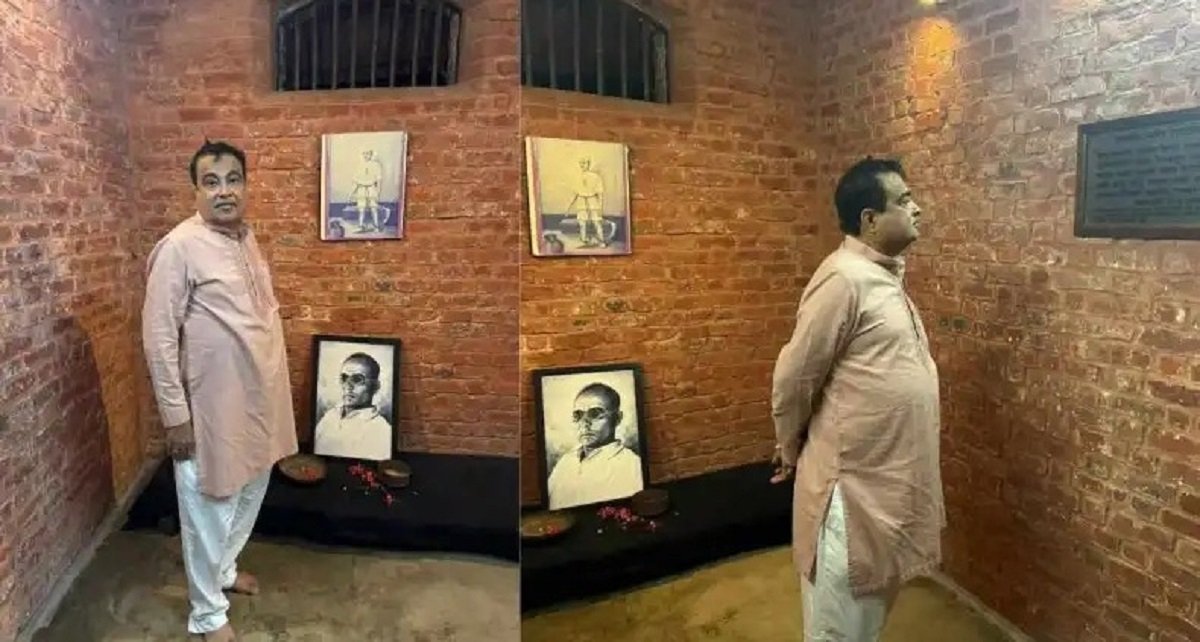Mr. Nitin Gadkari, the Union Minister for Road Transport and Highways, paid his homage to Veer Savarkar, one of India’s most well-known liberation fighters, at the famous Cellular Jail. Gadkari considered the lasting legacy of Savarkar’s life and philosophy as well as the significant contribution he made to India’s fight for independence during his recent trip to the Andaman Islands. Savarkar’s life is closely linked to the Cellular Jail, a somber reminder of the sacrifices made by innumerable freedom fighters during India’s colonial history.
Because of his involvement in the independence movement, he was imprisoned there for a number of years, during which time he suffered greatly. He has become an important character in India’s history because of his contributions to the country’s liberation struggle, especially through his writings and lobbying. Gadkari’s visit to the jail demonstrates the continued respect for Savarkar’s legacy throughout the nation, not only in Andaman and Nicobar. The commemoration from the Union Minister serves as a reminder of the area’s longstanding ties to the independence movement, especially the part the Cellular Jall played.
As a national monument, the Cellular Jail still draws tourists from all over the world who come to honor the many men and women who were imprisoned there for their commitment to Indian independence. The significance of this milestone in the continuous commemoration of India’s liberation fight is further reinforced by Gadkari’s homage.



